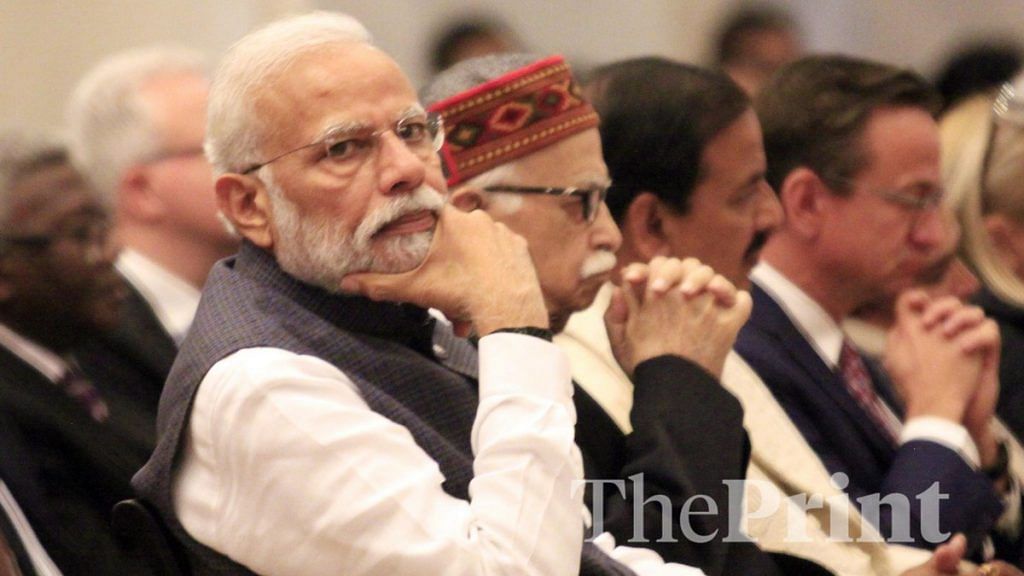New Delhi: The IAF strikes against terrorist training camps in Pakistan’s Khyber-Pakhtunkhwa epitomise PM Narendra Modi’s belief in the “eye-for-an-eye” doctrine.
The operation, conducted in the early hours of Tuesday, was initially marked by confusion over the exact location of the Balakot targeted, with areas by the name existing in Khyber-Pakhtunkhwa as well as Pakistan-occupied Kashmir (PoK).
Although Foreign Secretary Vijay Gokhale, perhaps by design, refrained from mentioning which Balakot it was, sources in the Ministry of External Affairs confirmed it was the one in Khyber-Pakhtunkhwa, a stronghold of Prime Minister Imran Khan’s Pakistan Tehreek-e-Insaf party.
With this, the significance of the operation and its message were clear: Modi would not shy away from striking inside Pakistani territory.
For years, the intelligence community has argued that since India considers PoK its own territory, strikes there are acceptable. Any strikes outside PoK, they have said, would amount to undeclared war.
But by going outside PoK, Modi seems to be demonstrating that he is prepared for Pakistan’s retaliation and the world’s wrath – although the world had already been warned after the Pulwama attack and it had largely indicated support.
Also read: Madrassas to military training — how Balakot emerged as largest breeding ground for JeM
Knowing the neighbour
Balakot in Khyber-Pakhtunkhwa lies in a stunningly beautiful valley. It is a mere 64 km from Abbotabad, where the Pakistani military school is located and al Qaeda founder Osama bin Laden was killed in 2011. It has also been a hotspot for Barelvi extremists for the last nearly 200 years.
The Jaish-e-Mohammed, which claimed responsibility for the 14 February Pulwama attack that propelled Tuesday’s strike, and other terror groups have used the area as a hideout for years now.
In 2005, when this reporter visited Balakot, close to the epicentre of an earthquake that had struck Jammu & Kashmir, large parts of it had been destroyed.
What is significant in this morning’s strike is that the Modi government appears to have a clear understanding of the Pakistan nuclear threshold, a factor that was missing earlier.
One of the arguments against retaliation after the 2001 Parliament attack, which saw the Indian Army massing on the border (called Operation Parakram), and after the Kaluchak terror strike in May 2002, was that India was not fully cognisant of Pakistan’s nuclear threshold, as the country had held its first nuclear tests just a few years before, in 1998.
Also read: These are the 3 locations in Pakistan that were bombed by Indian Air Force
A clear message
The fact that the IAF travelled about 80 km across the LoC under the cover of darkness and returned safely holds enormous political significance.
This strike allows Modi to tell the world as well as Pakistan that India will not take terror lying down.
It ends, once and for all, the diplomatic charade that India has seen for the last 10 years since 26/11, with the Pakistan establishment taking no action against the terrorist masterminds on its soil.
At the time of the 2008 Mumbai strike, then Prime Minister Manmohan Singh was persuaded not to retaliate by the international community. This time around, Modi has told the world that he will not listen to any pleas in this regard — and the world has understood his anger.
The US has scrambled to support Modi’s decision to strike back as have most of the other Permanent-Five countries, except China, a close ally of Pakistan.
Russian President Vladimir Putin had issued a statement condemning the Pulwama attack within hours.
This is certainly Modi’s Pokhran moment. In 1998, then Prime Minister Atal Bihari Vajpayee had taken India into the nuclear club, sending the world a message that the country was a regional power to contend with.
Modi’s IAF strikes on PoK are a signal that he will not hesitate to go to war if he needs to do so.
